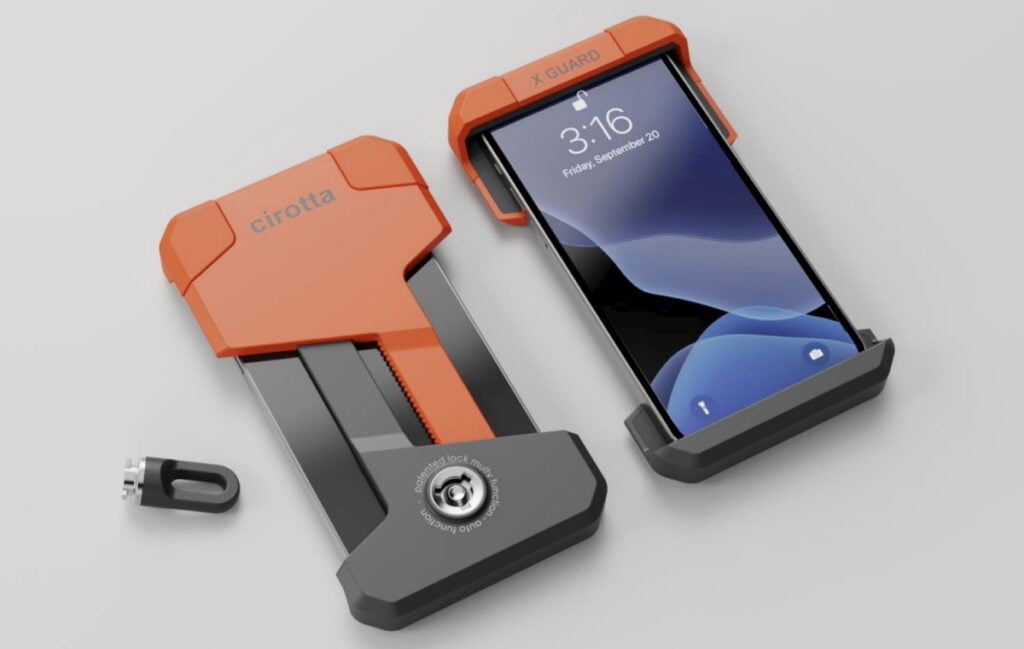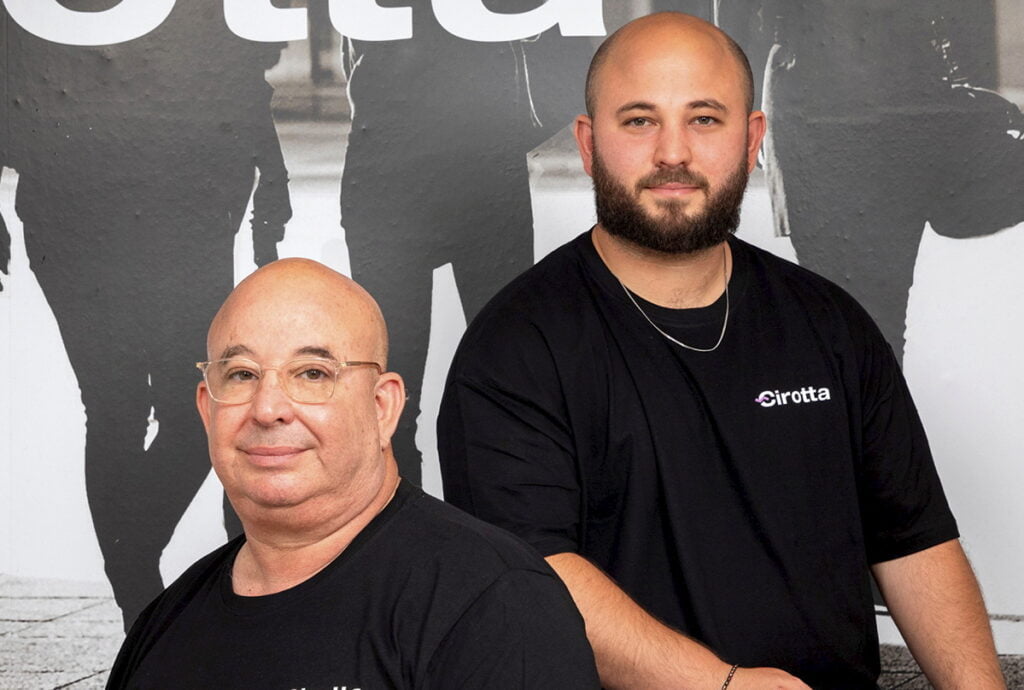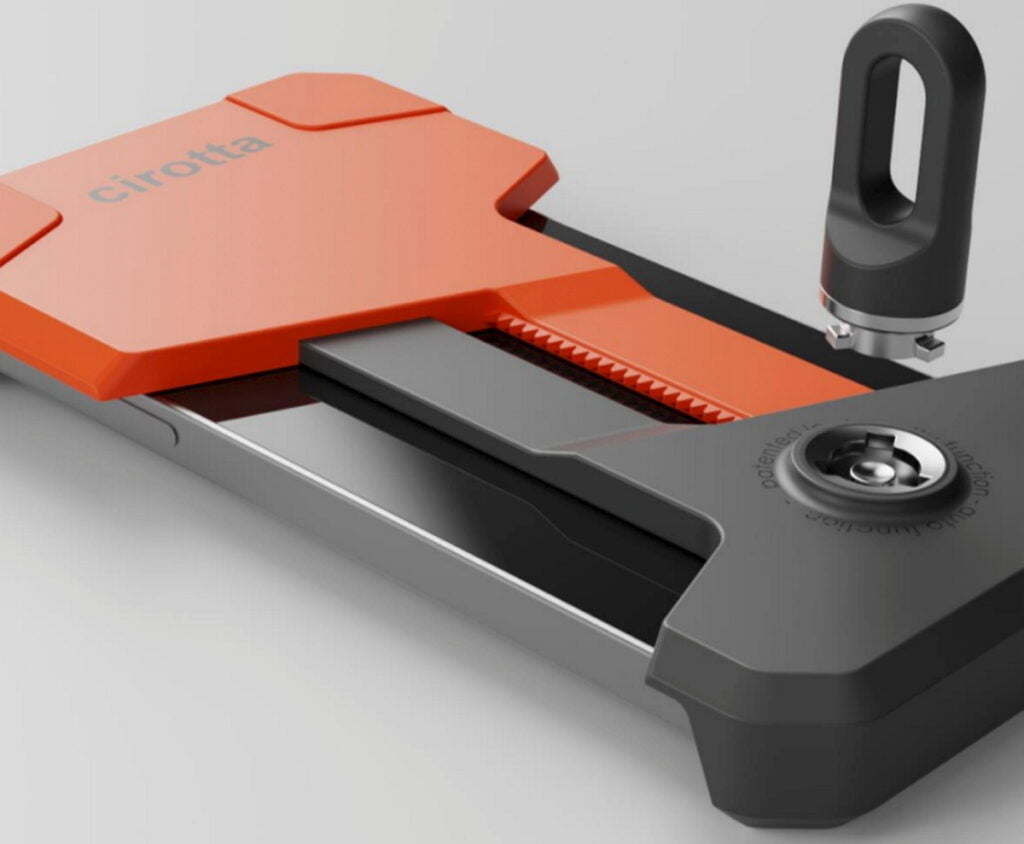Hardware solution blocks access to camera, microphone and GPS
The smartphone in your pocket may be your best friend, but it can also become your worst enemy.
Hackers can tap into your camera, your microphone, even your GPS, Bluetooth and Wi-Fi connections to secretly track your activity.
Father and son security specialists Shlomi and Eran Erez have come up with an anti-surveillance case that locks onto a smartphone and is “almost bulletproof” in safeguarding it from hardware hacks.

It uses audio frequency-based algorithms to block external access to all the transmissible data points that cybercriminals could attempt to control, without preventing the owner from using those features.
Likely users include corporate executives, government officials, private security organizations, police, military, research, and development centers, in fact, anyone concerned that their privacy could be compromised.
By creating a physical barrier between users’ phones and outside hackers, Tel Aviv-based startup Cirotta aims to give protection to the most vulnerable – yet most widely used – device on the planet.
“Mobile phones are keeping lots of important data,” Cirotta chief operating officer Eran Erez tells NoCamels. “We are going everywhere with our phones. It is like a new organ we have on our body because people don’t just get rid of their phones, they want to be connected all of the time.”
The company aims to prevent unwanted phone recordings and tracking, unwanted calls, system hacks, and data sweeping. It also blocks outsiders’ access to the phone’s GPS, which could reveal the owner’s exact location.
The mobile industry has long lacked widespread antiviral hardware technologies – options that are far more common in the computer space. Phone software, however, is an increasingly common threat for hackers. It is this threat that Cirotta is working to counter through its innovative privacy approach that creates a physical barrier between users’ phones and hackers.
“Software is the most hackable thing ever. If people have enough effort, eventually software can be hacked. It doesn’t matter how sophisticated it is,” Erez says.

In fact, in today’s world, learning how to hack does not require a technology background. Hackers can learn basic software skills through online platforms like YouTube and easily transition into breaching consumers’ privacy, Erez tells NoCamels.
Cybercriminals actively look for weak points they can exploit in smartphones. Once connected, they can scour the device for financial information, private identity records, contacts and other personal information. They can even load malware onto an iPhone even when it’s off, exploiting a new feature in iOS 15 that allows users to locate a phone using Bluetooth, Near Field Communication (NFC), and Ultra-Wideband (UWB).
Sign up for our free weekly newsletter
SubscribeEran and his father, Shlomi founded Cirotta in 2019 to bridge advanced hardware technology with the mobile industry. Eran served in the Israeli Air Force Intelligence Special Forces and Shlomi was a colonel (reserves) in the Israeli Air Force. The two sought to bring their military defense knowledge to the mobile sector by founding Cirotta.
“This is a cross-section issue,” Erez explains. “It’s not a problem in not just one section, not just one smaller market. The [mobile] market is getting larger and larger because there are new users using their mobile phones and not their laptops or PCs
Cybercriminals learn tricks from YouTube
Shlomi and Eran Erez aimed to come up with a solution that would protect users’ phones via hardware – a generally uncharted solution in the mobile space. In creating a phone case that is not directly connected to the phone nor its cellular activity, the company has provided a solution to daily data breaches. The cases retain charge for around 24 hours and allow users to maintain complete phone usage.
“People are dying to get their privacy back. This could be a fit for both industry and private sector – all are thirsty to get their security back to them,” Erez says. “We needed to come up with a solution that could be almost – 99.99% – bulletproof.”
Cirotta offers its technology to businesses and consumers through two distinct phone case models – technology that is backed by six patents worldwide.
Models tailored to specific phones, currently the iPhone 12 and 13 Pro devices and the Samsung Galaxy S22 are already available. Universal models to fit all smartphones will be available next month.

“When you use the case – when it is on – there is zero option for someone to get into your phone by any kind of electromagnetic field (through frequencies). Through our system, there is no way to hack into a phone or system in your area – as is happening with many organizations. There is no way to hack through local WiFi,” Erez explains.
Cirotta founders see their product as a critical need for users storing important information on their devices, both in the corporate and private sectors. While the company currently markets to mostly high-level business executives, government officials, and corporations in Europe, Asia, and Africa (with cases priced between $220 and $250), they hope to move to both business-to-business and business-to-consumer operations globally.
Looking to the future, the company hopes to broaden its antiviral cybersecurity technologies both within and outside of the mobile industry. Cirotta hopes to make calls more secure, pair case hardware with antiviral software technologies, and help consumers understand if and when their phones are being targeted, Erez explains.
“We want to supply more security to people. To work in other fields other than mobile phones,” he says.
Related posts

Editors’ & Readers’ Choice: 10 Favorite NoCamels Articles

Forward Facing: What Does The Future Hold For Israeli High-Tech?

Impact Innovation: Israeli Startups That Could Shape Our Future




Facebook comments